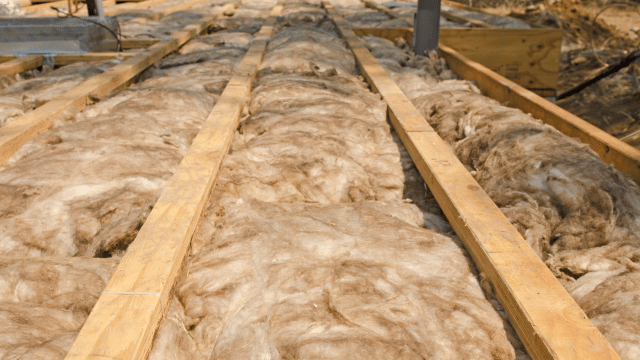The Benefits Of Insulation
Insulation is a key component of energy-efficient buildings, helping to create a comfortable living or working environment while minimising the need for excessive heating or cooling. It also plays a crucial role in reducing energy & heat consumption, ultimately saving money for both homes and businesses.
In this article, we will delve into the different types, where it can be installed, and explore their many benefits.
Types Of Insulation
- Fiberglass – One of the most common types of insulation, fiberglass is made from fine glass fibers and is available in batts, rolls, or loose-fill forms. It is known for its affordability, ease of installation, and effectiveness in resisting heat transfer.
- Cellulose – Made from recycled paper, cardboard, or other wood-based materials, cellulose is an eco-friendly option. It can be blown or sprayed into walls, attics, and other cavities, providing excellent thermal performance.
- Spray Foam – This type of insulation expands after application, creating a sealed barrier that effectively prevents air infiltration. It is versatile and can be applied to various surfaces, providing a high level of insulation and air sealing.
- Mineral Wool – Mineral wool, derived from molten rock or slag, is available in batts, rolls, or loose-fill forms. It is fire-resistant and provides good thermal and sound insulation, making it suitable for various applications.
Where Can It Be Installed?
Insulation can be strategically installed throughout various areas within residential and commercial buildings. Properly insulating these key areas helps create a more energy-efficient envelope, reducing the workload on heating and cooling systems and contributing to significant energy savings.

The Many Benefits
Insulation offers a wide range of benefits, making it a wise investment for both homes and businesses.
- Energy Efficiency – One of its primary benefits is its role in improving energy efficiency. Insulated buildings require less energy for heating in the winter and cooling in the summer, as it helps maintain a consistent indoor temperature.
- Cost Savings – By reducing the need for excessive heating or cooling, insulation leads to lower energy bills. Over time, the cost savings can be significant, making it a cost-effective investment.
- Temperature Regulation – It also acts as a barrier against heat transfer, helping to keep indoor spaces warmer in the winter and cooler in the summer. This regulation of temperature contributes to a more comfortable living or working environment.
- Environmental Impact – Energy-efficient buildings with proper insulation contribute to lower overall energy consumption. This, in turn, reduces greenhouse gas emissions and helps mitigate the environmental impact associated with excessive energy use.
- Reduced Carbon Footprint – As energy consumption decreases with effective insulation, the carbon footprint associated with a building’s energy use is also reduced. This aligns with broader efforts to combat climate change and promote sustainability.
- Reduced Sound – Insulation provides acoustic benefits by absorbing and dampening sound. This is particularly important in residential buildings, offices, and commercial spaces, where reducing noise from outside or between rooms enhances overall comfort.
Thinking About Installing Insulation?
In the ever-evolving world of home and business improvements, one factor stands out as a game-changer — insulation. Transform your space with us, and experience the comfort and savings that quality insulation can bring.
Connect with us to discuss your building’s requirements:
01400 250572 | info@radiant-renewables.co.uk
Are you a homeowner? You can learn more about retrofitting here!
